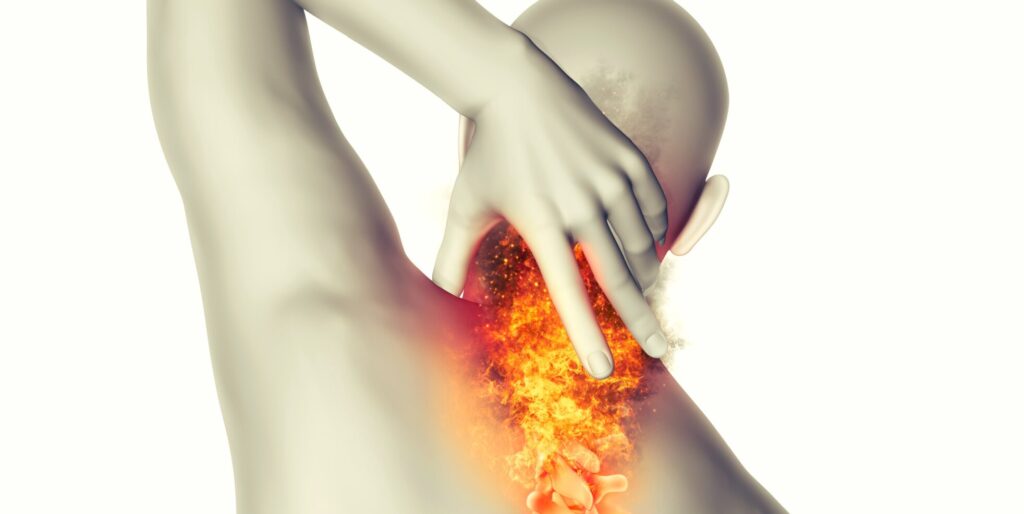Read time 4 minutes
This blog is another opportunity to feel grateful. Thank you, dear Universe, you continue to bless me with recovery and health.
In no time, a typical twitch kind of sensation became a constant phenomenon. It continued even during sleep.
Muscle Fasciculation is also called Muscle Twitching. It is the firing of a group of muscle and nerve cells that come together to contract a particular muscle. In general cases, it is the damage to nerves that might cause the muscle fibers to twitch.

I was diagnosed with a rare disease called Isaacs’ Syndrome. Isaacs’ is a neuromuscular health condition that stems from muscle hyperactivity. My lift post-diagnosis underwent a drastic change. In the process, I also discovered that I had Lyme disease. Lyme is a bacterial illness that gets transmitted through ticks. I was also accompanied by Glaucoma. Glaucoma is an eye-related disease that damages the optic nerves. And Membranous Glomerulonephritis is a progressive kidney disease.
Fasciculation can be a symptom of many health issues. However, in my case, it was the key symptom of Isaacs’ Syndrome.
Fasciculations have a mind of their own!
To begin with, I am trying to sleep, and suddenly there goes tic, tic. It went unrested as the frequency was at least once every 30 seconds and it went on for hours together. Throughout my body, the muscles rippled like something was moving under my skin. It involved different muscles and slowly, became more noticeable. It tensed my muscles, specifically the calf or bicep area made me miserable.
I had little idea that the accompanied symptoms like fatigue, pain, muscle loss, and stiffness were by-products of Isaacs’.
The doctors tested my CPK levels. They are an important enzyme essential for the functioning of muscles. The levels were extremely abnormal. It signaled muscular injury and inflammation.
I was hospitalized for a proper medical evaluation. The clinical tests included EMG, PET scan, MRI, and lumbar spine ultrasonography. Among others were kidney biopsy, and antibody tests like GAD and Caspr2. Electromyography (EMG) was an important test. It evaluated the health condition of the nerve and muscles identifying muscle disorders.
What causes muscle twitching?
I discovered certain facts about twitches after discussing them with the experts.
The human nervous system is divided into the peripheral and central nervous system.
The central nervous system includes the brain and the spinal cord. They also connect different nerves that travel throughout the body. This is the peripheral nervous system.”
The peripheral nervous system helps in controlling the voluntary movement of the muscles.
These nerves trigger fine muscle movements. They are very sensitive and sometimes, they misfire.
“Fasciculations result when the awareness pattern is disturbed. The peripheral nervous system to the muscle is not working fine.
The biochemical mechanism of fasciculations is yet to be completely understood.
My course of treatment
My treatment was designed to treat the Isaacs’ Syndrome and its symptoms. Muscle fasciculation is one of the symptoms of the underlying condition.
The treatment started with symptomatic Western medicines. It was accompanied by therapies that seemed the only source of immediate relief. My list of medicines included steroids, immunosuppressants, and muscle relaxants. I was recommended therapies like IVIg, Plasmapheresis, etc.
- I also tried holistic healing methods to refrain from the side effects of the medicines:
- Get adequate sleep.
- Managed stress and anxiety.
- Practiced deep breathing and meditation techniques trying to slow down muscle movements.
- Ate healthy.
- Stopped the intake of caffeine.
- Tried AYUSH methods, including Ayurveda and Homeopathy.
- Had Electrolytes to keep hydrated and help muscles.
- Took extra care to balance my Vit B12 and Vit D levels.
- Intake of magnesium supplements.
A fresh set of eyes may uncover important information. I was fortunate to meet some helpful doctors and discovered some useful facts:
Stop consuming muscle Stimulants. Coffee, asafetida, and garlic could aggravate the nervous system.
Control Anxiety levels and try keeping Stress-free.
Add Nutrients like magnesium, calcium, potassium, Vit B, and Vit D to food or else start supplements.
Stop the comparison business. Every individual is unique. It is important to understand physical and mental limitations.
My key takeaways
A treatment or medicine that works well with one does not essentially work well with others. There is no one size fits all.
Muscles for sure have a mind of their own. Indulging myself by practicing a mind-body technique of relaxation got tremendous benefits.
Be extra precautions if one suffers from more than one chronic or rare disease.
Being consistent and efficient in communication through any crisis is important. I kept a common link between all the doctors.
I developed many side effects from the medicines and treatments like Diabetes and BP. Keeping a close watch on the symptoms and its side effects was important.
Do not skip medicines.
At times I had adverse reactions after a new drug was added to the prescription. I immediately took medical attention.
The key was to slowly build symptoms tolerance, take baby steps, learn, and re-learn.
DISCLAIMER
The views expressed above in this article are the author’s own and do not represent any kind of medical advice.


